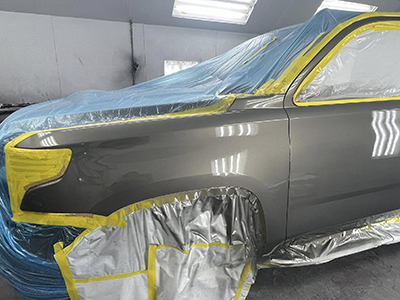Owning a car comes with its share of joys and challenges. While regular maintenance can extend the life of your vehicle, there often comes a time when you’re faced with a crucial question: Should you repair your car or replace it? This decision isn’t always straightforward, so we’ve broken down the key factors to help you make an informed choice.

1. Assess the Costs
The first step in deciding whether to repair or replace your car is to evaluate the costs involved:
- Repair Costs: Get an estimate from a trusted mechanic for the necessary repairs. If the repair costs are relatively low and the car has been reliable, repairing it might make sense.
- Replacement Costs: Consider the cost of purchasing a new or used vehicle. Factor in not just the purchase price but also potential financing, insurance, and taxes.
A general rule of thumb is that if the repair costs exceed 50% of the car’s current market value, it may be time to replace it.
2. Consider the Age and Mileage
The age and mileage of your car are significant indicators of its remaining lifespan:
- Cars typically begin to experience more frequent and costly repairs after the 100,000-150,000 mile mark.
- Older vehicles may also lack modern safety features and fuel efficiency, making a replacement more appealing.
However, if your car has been well-maintained and still performs reliably, age and mileage alone may not justify a replacement.
3. Evaluate Reliability
Is your car breaking down frequently? Unreliable vehicles can be a safety risk and a source of stress. If you’re constantly worried about being stranded or late due to car troubles, replacing your vehicle might save you time and headaches.
4. Check for Recurring Problems
If the same issues keep resurfacing despite multiple repairs, it could indicate deeper systemic problems. This is particularly common in older vehicles or those with significant wear and tear.
5. Environmental Considerations
Newer cars are generally more fuel-efficient and environmentally friendly, often featuring hybrid or electric options. If your current vehicle is a gas-guzzler and you’re looking to reduce your carbon footprint, upgrading could align with your goals.
6. Sentimental Value
Sometimes, a car holds sentimental value that outweighs its financial worth. If you’re emotionally attached to your vehicle, you might opt for repairs, even if replacing it would be more cost-effective.
7. Future Plans
Think about your long-term needs. If you’re planning on expanding your family or moving to an area with different driving conditions, a replacement might better suit your future lifestyle.
When Repairing Makes Sense
- The repair cost is less than half the car’s market value.
- The car has a solid maintenance history.
- The vehicle is still safe and reliable.
- You’re not ready to take on a car loan or large upfront costs.
When Replacing Makes Sense
- Repair costs exceed the car’s value.
- The vehicle has become unreliable and a source of stress.
- Newer cars offer significant upgrades in safety, technology, or fuel efficiency.
- You’re ready to invest in a long-term solution that meets your evolving needs.
Final Thoughts
Deciding whether to repair or replace your car is a personal choice that depends on your financial situation, vehicle condition, and future goals. By carefully evaluating the factors outlined above, you can make a decision that balances practicality with peace of mind. And remember, consulting with a trusted mechanic can provide invaluable insights into the condition of your car and the best path forward.
If you’re facing this decision and need expert advice or a detailed inspection, don’t hesitate to reach out to us. At [Your Auto Shop Name], we’re here to help you make the best choice for your vehicle and your budget.
Lim’s Auto Body is a full service auto body and mechanical repair shop locally owned and operated in Largo, Florida. For more information, go to our web site www.limsautobody.com or call (727) 422-3232.
